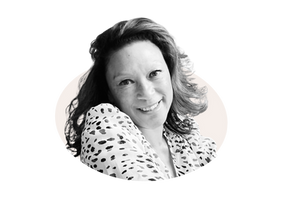How Self-Taught Designer Andrea Nguyen Is Leading Her Company With Purpose and Innovation
- Editorial
- Feb 27, 2025
- 6 min read
Updated: Jun 2, 2025

Meet Andrea Nguyen, the Co-Founder of Koi Studios, a product design studio that transforms big ideas into user-centric strategies and exceptional digital designs.
Andrea’s journey began as a self-taught UI/UX designer at leading tech companies like Ticketmaster and Foursquare. Despite gaining invaluable experience, she found corporate life stifling, lacking the flexibility and purpose she craved. A candid conversation with her future co-founder revealed their shared dream of building a studio that prioritized meaningful, impactful work. In 2022, Koi Studios was born—a place where they could harness design thinking and build intentional relationships with clients.
We spoke with Andrea about taking the leap from corporate life to entrepreneurship, the lessons she’s learned about redefining success, and what’s next for her and Koi Studios.
Tell us the story behind your company’s founding. How and why did you start working on Koi Studios?
I started my career as a self-taught UI/UX designer working for large tech companies like Ticketmaster, WM, and Foursquare. While I gained invaluable experience, I eventually realized that the corporate world wasn’t where I could do my best or most fulfilling work. I wanted to have more say in the projects I worked on. I felt that my passion for building strong, compassionate relationships didn’t quite fit within the rigid corporate environment.
My co-founder and I luckily met at our last roles and had a candid, out-of-the-blue conversation about what we truly wanted from our careers and lives. We realized that we both craved more purpose in our work—projects that felt meaningful and made a positive impact on the world. So, we decided to take the leap and start something of our own, where we could not only choose the work we do but also determine how we work and who we collaborate with.
In what ways has your upbringing or past experiences contributed to how you operate as an entrepreneur?
Growing up in an Asian-American culture, I was taught to value stability, security, and safety—things that often don’t align with the risks of entrepreneurship. Success was defined by having a well-paying, stable job that could help me save, buy a home, and support my family. So, when it came time to start my own business, it felt like a huge leap into uncertainty. It was definitely scary.
But those same values also gave me a practical mindset that helped me approach entrepreneurship thoughtfully. I didn’t quit my job until we had built up enough clients and were essentially forced to make a decision. I took the time to regularly assess our progress, build a financial safety net, and ensure we had enough runway to cover expenses for a few months. That practical approach gave me the confidence to keep pushing forward and investing in myself. Over time, what once felt risky started to feel like the new normal. And I embraced the uncertainty as part of the journey.
What were the most difficult and most impactful lessons you’ve learned since starting and running a company?
As a product designer, so much of your value feels tied to your output—how many features you can design, the quality of the screens you deliver, and the complexity of the problems you’re solving. When we started our design studio, I spent 90% of my time on client work, billing hours, and feeling like I was being productive. If I didn’t bill a lot of hours in any given week, I felt guilty.
But over time, I started to burn out. I realized that I only have so much bandwidth—40 hours a week, to be exact. I couldn’t keep growing the business if I was fully immersed in client work and not dedicating any time to things like marketing, outreach, networking, or hiring. That’s when I had to shift my mindset. I realized that work isn’t just measured by immediate output. Sometimes the most important work doesn’t come with instant results.
I learned to trust the process, delegate, and understand that, in order to grow, you need to invest time in things that won’t always pay off right away. It’s about making strategic sacrifices now to exponentially increase your potential for the future.
"Sometimes the most important work doesn’t come with instant results. It’s about making strategic sacrifices now to exponentially increase your potential for the future."
What’s the biggest misconception others have around entrepreneurship?
That you have to work day and night, sacrifice your work-life balance, and constantly hustle to be successful. Will there be weeks when you need to put in extra hours to meet deadlines? Absolutely. Like any pursuit, sacrifices are sometimes necessary. But you don’t need to burn yourself out to build a successful business. In fact, if you feel like you have to constantly grind, something’s off. The key is to set up strong processes, hire the right people, delegate, and partner with others to ensure you’re not doing everything yourself.
The beauty of working for yourself is the freedom and flexibility it offers. You shouldn’t feel guilty about taking time for yourself. It’s important to enjoy the benefits of entrepreneurship as you go, rather than waiting until you’ve “made it” to start living the life you’ve been working so hard to create.

Has your definition of success evolved throughout your journey as a founder?
At every stage of our business, the definition of success has evolved, and that’s a sign of growth. When we first started, success was winning our first client. Then it was hiring our first subcontractor. After that, it was increasing our revenue by 20% year-over-year.
Even our vision has shifted. Initially, we wanted to stay lean with just the two of us for as long as possible. But as we grew, we found ourselves wanting to collaborate with more people. We realized we wanted to expand into a bigger studio.
As founders, we can be really hard on ourselves when we don’t meet our goals. I often feel like I’m not doing enough or growing fast enough. It’s easy to fall into that mindset if we don’t take the time to look back and appreciate everything we’ve accomplished. We set harder goals because we’re growing. And it’s important to celebrate how far we’ve come, even as we keep pushing forward. The key is to consistently check in with yourself to make sure what you want hasn’t changed and that the work you’re doing still aligns with those goals.
What is your approach to incorporating social or environmental impact as part of Koi Studios’ culture and mission?
Creating a positive impact on the world is the core reason we started our studio. It’s deeply embedded in our culture. Our mission is to design products that make the world a little easier to live in.
We’re intentional about the clients we work with, choosing those whose missions resonate with us. We’re especially passionate about industries like climate tech, where we feel we can contribute to meaningful change. This alignment with our values ensures that we’re not just doing work for the sake of it, but because we believe in the projects we’re part of.
In addition to our client work, we donate a percentage of our monthly revenue to charities focused on environmental and social impact. This has been a key part of our commitment to making a difference, not just through design, but also through financial support.
What would you tell your younger self if you were to start your entrepreneurial journey all over again?
Go out and meet as many people as possible. Put yourself in spaces where you’re not the smartest person in the room. And always be ready to learn. Get comfortable with networking and striking up conversations with people you don’t know. Be genuinely curious about their journeys because you never know who might help you down the road.
What’s next for you and Koi Studios?

We’re focused on growing in every way we can. Right now, that means hiring more subcontractors, investing in marketing and outreach, and getting more involved in the community by attending and hosting events.
We’re also continuing to work with clients in climate tech, health tech, consumer applications, and enterprise software. Our goal is to help as many organizations as possible—from startups to large enterprises—build products that not only help people but that people love using.










